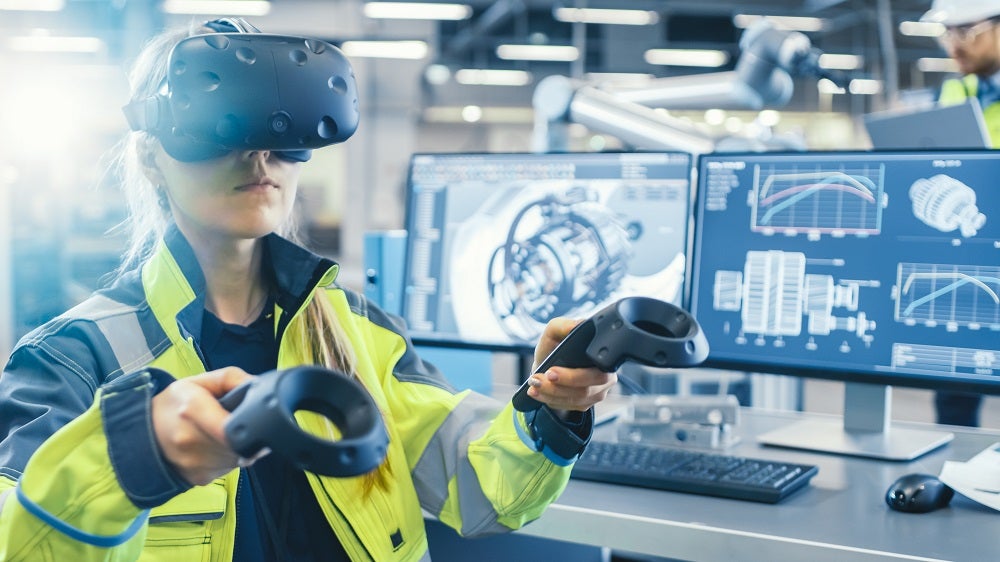Virtual reality (VR) is still striving for mainstream appeal but it is a key enabler of the metaverse—a virtual world where users share experiences and interact in real-time within simulated scenarios. It will also play a vital role in the future of work, and enterprises across a range of sectors are already using VR for training, collaboration, data visualization, and increasing customer experience. Adoption will rise as new use cases and VR-based metaverse platforms emerge.
However, VR has several long-standing hurdles to clear to be successful, especially in the consumer market. VR headset creators must make their devices comfortable for long-term use and address network latency issues before achieving mainstream success. They must also focus on the development of content ecosystems and addressing data privacy concerns.
VR is aiming for mainstream appeal among consumers
VR is a niche product in the consumer electronics sector, largely restricted by a dearth of compelling content. Gaming remains the primary driver for VR in the consumer market, but there is still no killer app for VR that will ensure its mainstream appeal. VR makers must expand their content ecosystems to include compelling games, films, education, and live events to attract and retain customers.
Both VR hardware and software have evolved significantly in recent years, but issues such as latency, high prices, privacy concerns, and limited content have limited VR’s widespread adoption. While technologies such as 5G, cloud services, and motion tracking are used to address latency issues, improving the available content and developing effective data privacy practices will be paramount for VR’s success in the coming years.
VR will be a key technology in the future of work
Today, VR is used in industries such as retail, aerospace, airlines, oil and gas, and healthcare, mainly for training and collaboration. The COVID-triggered shift to remote working, coupled with the development of VR-based collaboration tools, has made enterprises a fertile ground for VR growth. Such applications will become key use cases for the emerging enterprise-grade metaverses in the coming years. As a result, big companies are starting to adopt VR for task-specific uses. For example, in October 2021, Accenture acquired 60,000 Oculus Quest 2 VR headsets for training new hires.
Early versions of VR metaverses are arriving on the market
VR-related technologies like simultaneous location and mapping (SLAM), facial recognition, and motion tracking are vital for developing metaverse-based use cases. Several VR metaverses are under development, while some are already available on the market.
How well do you really know your competitors?
Access the most comprehensive Company Profiles on the market, powered by GlobalData. Save hours of research. Gain competitive edge.

Thank you!
Your download email will arrive shortly
Not ready to buy yet? Download a free sample
We are confident about the unique quality of our Company Profiles. However, we want you to make the most beneficial decision for your business, so we offer a free sample that you can download by submitting the below form
By GlobalDataFacebook’s (now named ‘Meta’) Horizon Workrooms, accessible via its Quest 2 headset, is an enterprise-grade metaverse for remote collaboration. It allows users to appear as digital avatars and share a common workspace. Varjo’s Reality Cloud platform is another enterprise-grade metaverse in the making that can transport a VR-3 headset user to any real-world location virtually. Start-ups such as Spatial and vSpatial are also developing enterprise-grade metaverses using VR headsets for remote collaboration.
On the consumer front, VR metaverses are still in development and are focused on gaming, ecommerce, social media, and live events. HTC is reportedly developing a metaverse called Viveport Verse that will allow users to experience events such as exhibitions, sports, and concerts in VR. These metaverses could potentially improve VR’s appeal to consumers.









Related Company Profiles
Accenture Plc
Meta Platforms Inc
HTC Corp